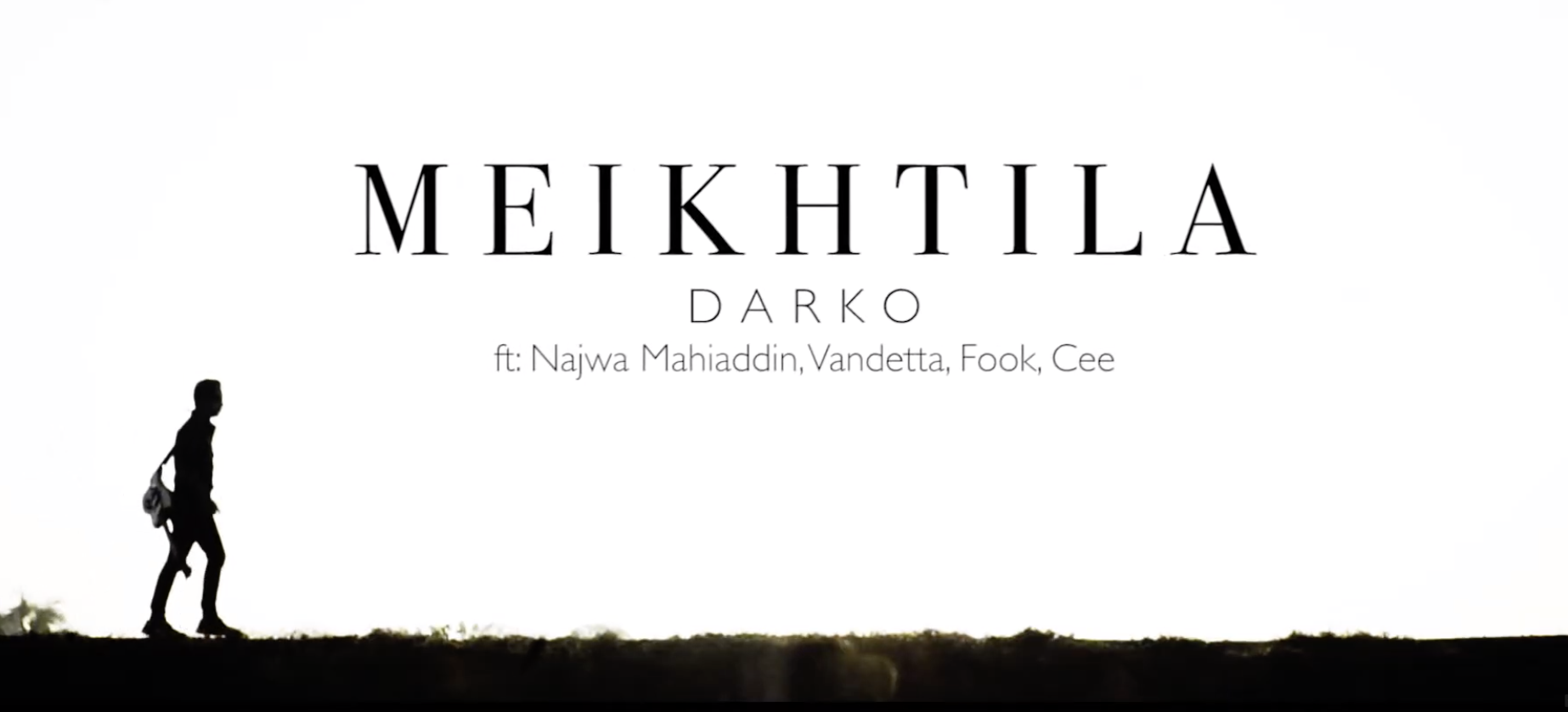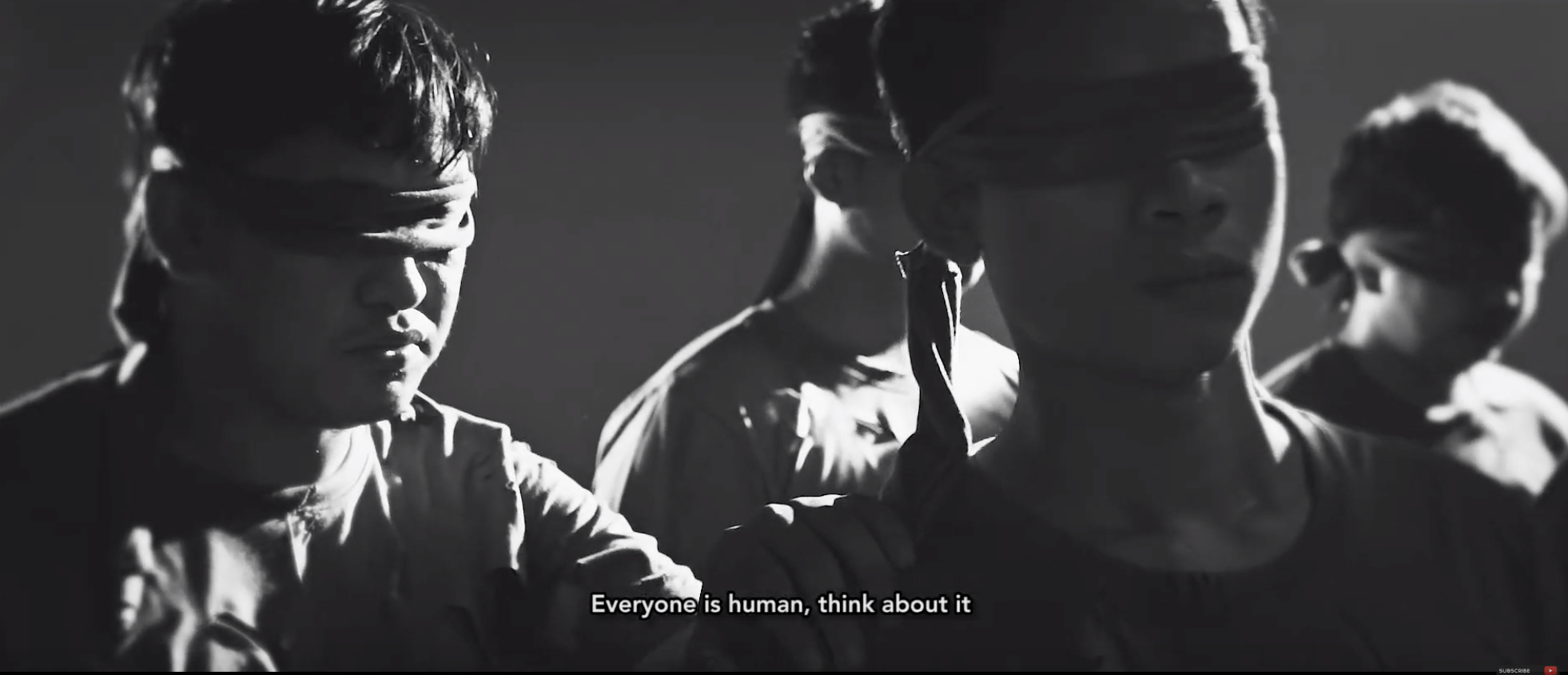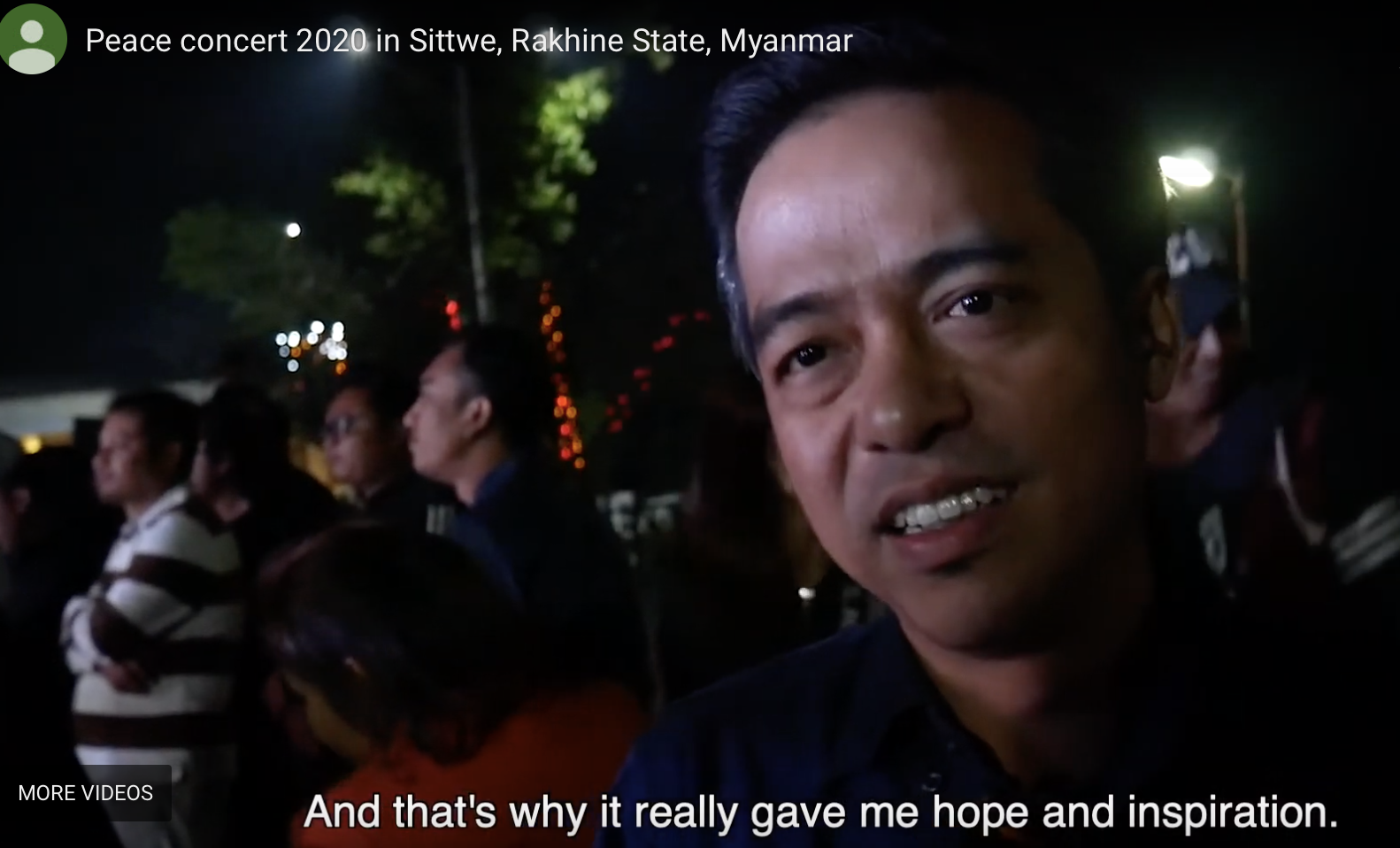“What do we want? Justice. Equality. Peace and freedom.”
–Kyaw Kyaw, Rebel Riot
Humanitarian voices in Sittwe
I recently talked with a humanitarian working in Myanmar, and we chatted about some recent events in the local poetry and music scenes that give reason for cautious hope. He forwarded a link to some graphic, compelling, and highly political videos recently produced by Turning Tables Myanmar.
From their web page:
Turning Tables Myanmar works to empower marginalized youth by providing the means to process and express their hopes, dreams and challenges, through the Creative Arts of music and film. We strive to address the root causes of inequality and provide support to a wide range of challenges in Myanmar from gender-based violence, tribalism, extremist groups, youth in urban slums and the communities in which they reside.
The five videos, under the umbrella title “Transition This”, are all extraordinarily well done and each has its own unique message. Taken together they provide a graphic but overall positive glimpse into how youth in Myanmar are struggling to find meaning and hope in the face of chronic conflict.
struggling to find meaning and hope in the face of chronic conflict.
The final video titled “Meiktila” is by Darko. His offering is exquisite and is a hypnotizing and hauntingly beautiful comment on religion, war, and our common humanity.
Peace concert in Rakhine
One of the most volatile regions in Myanmar is in the state of Rakhine (formerly known as Arakan) whose capital city is Sittwe. A few days ago there was a peace-themed music concert in Sittwe, and one of the bands that played was Rebel Riot, a Burmese punk band founded in 2007. Their song “Genocide” is an ‘in your face’ and uncompromising calling out of the Myanmar military. Here is the context.
The International Court of Justice will not have a final ruling for months of even years regarding the genocide case against Myanmar. Despite the 23 January ruling by the ICJ imposing provincial measures on Myanmar to prevent further genocide and destruction of evidence, there is no doubt this nation’s history of religious and ethnic persecution against both Christian and Muslim minorities, the majority being ethnic Rohingya, is still an issue. There is a constant flow of bad news out of Myanmar, with religious and ethnic tensions erupting with disturbing regularity.
The hyper nationalism (read: racism) that drives this tension is seen not just in Myanmar. Pro-sovereignty/isolationist nationalism movements drove Brexit in the UK, elected Donald Trump President in the United States, and has kept Benjamin Netanyahu in power in Israel, Bolsonaro in Brazil, and Modi in India. And the list goes on. These additional examples are real and important, but perhaps not nearly as acute as in Myanmar where those in power murder, rape, kill babies, and drive hundreds of thousands (in 2017 about 740,000) into refugee camps in neighboring Bangladesh.
Listening to the lyrics of the Rebel Riot song’s and the music videos produced by Turning Tables one gets a sense  that this young generation is tired of the killing and wants a more inclusive Myanmar. My humanitarian contact in Myanmar said he felt there was an ‘opening’ for a grassroots change in the religious and ethnic divisiveness. He noted there are signs that many are fed up with the views of those in power voicing Buddhist ethno nationalism, particularly the military, and envisioned a world of peace. Muslins, Buddhists, Christians and others are coming together and are working to break down the toxic barriers created by another generation. In the vernacular of my series of posts on the ‘privileging forces’ Hydra, they are calling out all mindless othering, especially that based on religion or ethnicity.
that this young generation is tired of the killing and wants a more inclusive Myanmar. My humanitarian contact in Myanmar said he felt there was an ‘opening’ for a grassroots change in the religious and ethnic divisiveness. He noted there are signs that many are fed up with the views of those in power voicing Buddhist ethno nationalism, particularly the military, and envisioned a world of peace. Muslins, Buddhists, Christians and others are coming together and are working to break down the toxic barriers created by another generation. In the vernacular of my series of posts on the ‘privileging forces’ Hydra, they are calling out all mindless othering, especially that based on religion or ethnicity.
What is their message?
The image above is from the Transition This video “Number of Genocide – Last Days Of Beethoven“. The lyrics on screen read “Everyone is human, think about it.” A clear message.
At the beginning of their set Kyaw Kyaw of Rebel Riot says, “We are fighting against racism, sexism, any kind of discrimination. We want to make a new world together.” Another clear message.
Darko of Side Effect also performed at the concert. Here is what he had to say,
“Seeing Rebel Riot perform their song “Genocide” here today has changed my view of Rakhine people. I thought that song was culturally unacceptable here. The lyrics are hard to accept for Rakhine people. The words are pretty rude. I didn’t think the young people here would accept it. But when the song came on people here just accepted it.
pretty rude. I didn’t think the young people here would accept it. But when the song came on people here just accepted it.
I think Rakhine people are ready for a change. I underestimated the Rakhine youth. But now I understand that there are changes happening already.
And the young people are expecting these changes. This is the new generation. They are young they are open minded.
And that’s why it really gave me hope and inspiration.”
In short, their message is the same as we have heard from all major faith traditions and humanistic ideologies: we are all human and all of us deserve respect, dignity, justice, and freedom. Humanity is better than the genocides driven by those who only lust for power and control. We can and want to overcome the darker angels of our nature; peace was the theme of this concert.
I urge you to watch all of the linked videos and, like me, become inspired by the messages. Defeating the Hydra means taking away the fuel that sustains its body and all of its destructive heads. Defeating the Hydra means demanding love over hate, acceptance over discrimination, peace over war. It also means using whatever tools of expression you can muster including poetry and music.
If you have comments or feedback, please contact me at arcaro@elon.edu.
https://www.youtube.com/watch?v=VzHMbU62z2g


 Follow
Follow